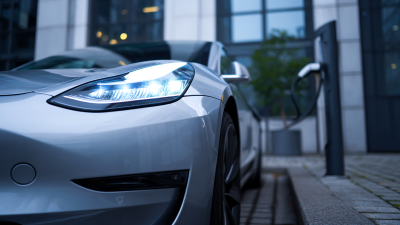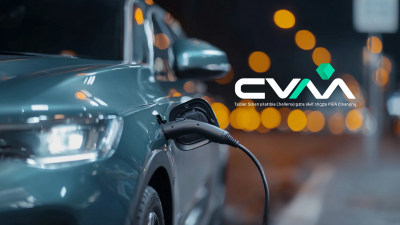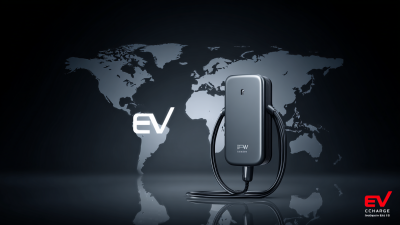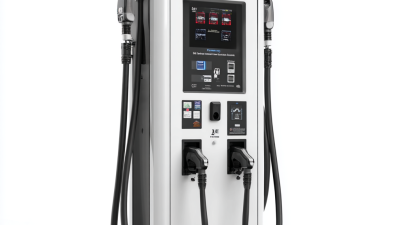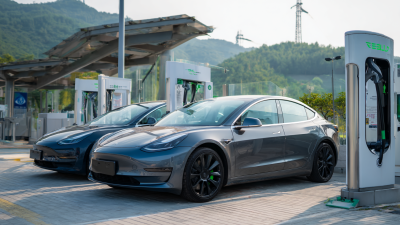As electric vehicle (EV) adoption accelerates globally, the demand for efficient charging solutions is more critical than ever. According to a report by the International Energy Agency, the number of electric vehicles on the road exceeded 10 million in 2020, with projections estimating that this figure could reach 145 million by 2030. In this context, the EV DC Fast Charger has emerged as a vital component in the charging infrastructure, offering rapid charging capabilities that can significantly reduce downtime for EV users. However, with various models and specifications available, choosing the right EV DC Fast Charger to meet individual needs can be daunting. This ultimate guide aims to navigate the complexities of selecting the best charger, ensuring that both new and seasoned EV owners make informed decisions based on their specific requirements and charging habits.

When it comes to selecting the best DC fast charger for electric vehicles (EVs), understanding the different types available is crucial. DC fast chargers can be categorized primarily into three types: Level 1, Level 2, and DC Fast Charging (DCFC). Level 1 chargers utilize a standard household outlet and are typically the slowest, while Level 2 chargers, which are commonly found in public charging stations, provide a quicker charge suitable for overnight use. DCFCs stand out as the fastest option, delivering high power outputs typically between 50 kW and 350 kW, allowing electric vehicles to charge in a fraction of the time compared to their Level 1 and 2 counterparts.
According to recent industry reports, the global DC fast charging market is anticipated to grow substantially, driven by increasing EV adoption and government initiatives to expand charging infrastructure. For instance, one report indicates that the number of DC fast chargers could exceed 280,000 units by 2025, with countries like Malaysia planning to establish 200,000 charging stations by 2030 as part of a larger push towards sustainable energy and transportation. Understanding these disparities in charger types not only assists consumers in making informed decisions but also aligns with the broader goals of transitioning to cleaner energy solutions.
When it comes to selecting the best EV DC fast charger, there are several key factors to consider that can significantly affect your charging experience. First and foremost, it’s important to assess the charging speed and power output of the charger. Different models may offer varying kilowatt (kW) ratings, which directly influence how quickly your electric vehicle can recharge. Look for chargers that can deliver at least 50 kW or more, especially if you're catering to a fleet or high-usage environment, as this can dramatically reduce downtime during charging.

Another crucial aspect to factor in is compatibility with your electric vehicle. Not all EVs are equipped to handle every type of fast charger, so ensuring that the charger supports the connector types used by your vehicles is essential. Additionally, you should consider the location and accessibility of the charger. A strategically placed fast charger can provide convenience for drivers and optimize charging time, particularly in commercial settings. Evaluating installation requirements and ongoing maintenance is also vital, as these can impact both the initial investment and long-term operational efficiency of your charging infrastructure.
When selecting the best EV DC fast charger, understanding charging speed and power levels is crucial. Charging speed is primarily determined by the charger’s output power, measured in kilowatts (kW). A higher kW rating signifies faster charging, which is essential for those who need to minimize downtime during their travels. Typically, DC fast chargers range from 50 kW to 350 kW. Consider your vehicle’s maximum charging capacity; it’s advisable to match the charger’s output with your EV’s requirements to optimize efficiency.
When choosing a DC fast charger, remember these tips. First, evaluate the locations where you will frequently charge. Ensure that the charger’s output aligns with your daily driving habits. Secondly, don’t forget about the installation requirements, as some high-powered chargers may need specific electrical configurations that could increase overall costs. Lastly, investigate any available incentives or rebates for installing fast chargers to alleviate some financial burden and invest in the best technology for your situation.
When selecting an EV DC fast charger, understanding the cost dynamics is crucial for maximizing long-term benefits while managing initial investments. According to a report by BloombergNEF, the upfront cost of DC fast chargers typically ranges from $30,000 to $150,000, depending largely on power levels and installation complexity. While this may seem steep, a thorough cost analysis reveals that the benefits can outweigh these initial expenses over time. By increasing charging speed, these chargers can significantly reduce downtime, enhance user satisfaction, and ultimately contribute to greater revenue generation for commercial charging networks.
Moreover, an analysis by the International Council on Clean Transportation highlights that EV adoption is expected to grow, with projections indicating that by 2030, there could be up to 300 million electric vehicles globally. This surge in demand will inevitably elevate the need for efficient charging infrastructure. Investing in a quality DC fast charger not only aligns with current trends but ensures operators can meet future demands. The long-term benefits, including reduced operational costs and improved customer loyalty, make the initial financial commitment worthwhile for many stakeholders in the electric vehicle ecosystem.

When selecting the best DC fast charger for electric vehicles, it's crucial to consider the evolving landscape of lithium-ion battery technology. With strong policy support and incentives driving the integration of renewable energy, the market is witnessing significant advancements in lithium-ion battery designs.
Innovative solutions such as lead-free fuse technology are paving the way for future-proof charging systems that comply with current regulations while anticipating future updates.
As we move towards an era where compatibility and cutting-edge technology are paramount, it becomes essential for users to keep an eye on these trends. The emergence of high-tech battery solutions, particularly in sectors relying on 5G communication and outdoor energy storage, signals a robust growth trajectory. With the forecasted increase in the market size for these sectors, the demand for efficient and compatible charging solutions will undoubtedly rise, further solidifying the importance of selecting the right DC fast charger to meet diverse energy needs.
